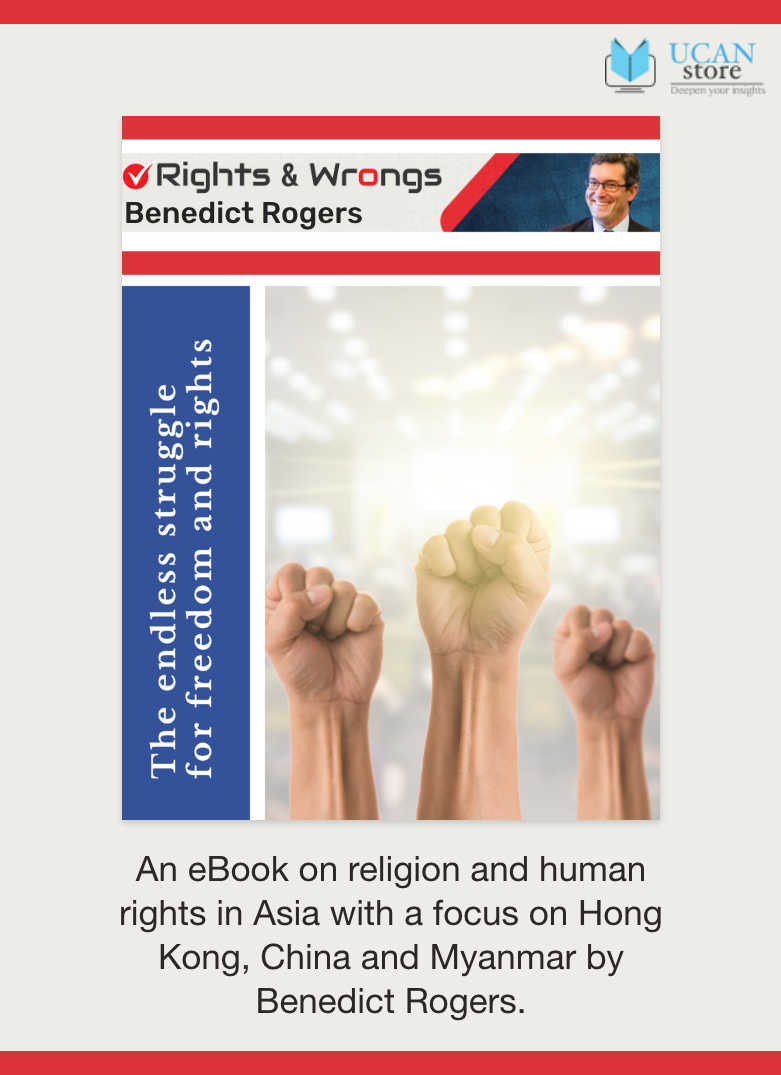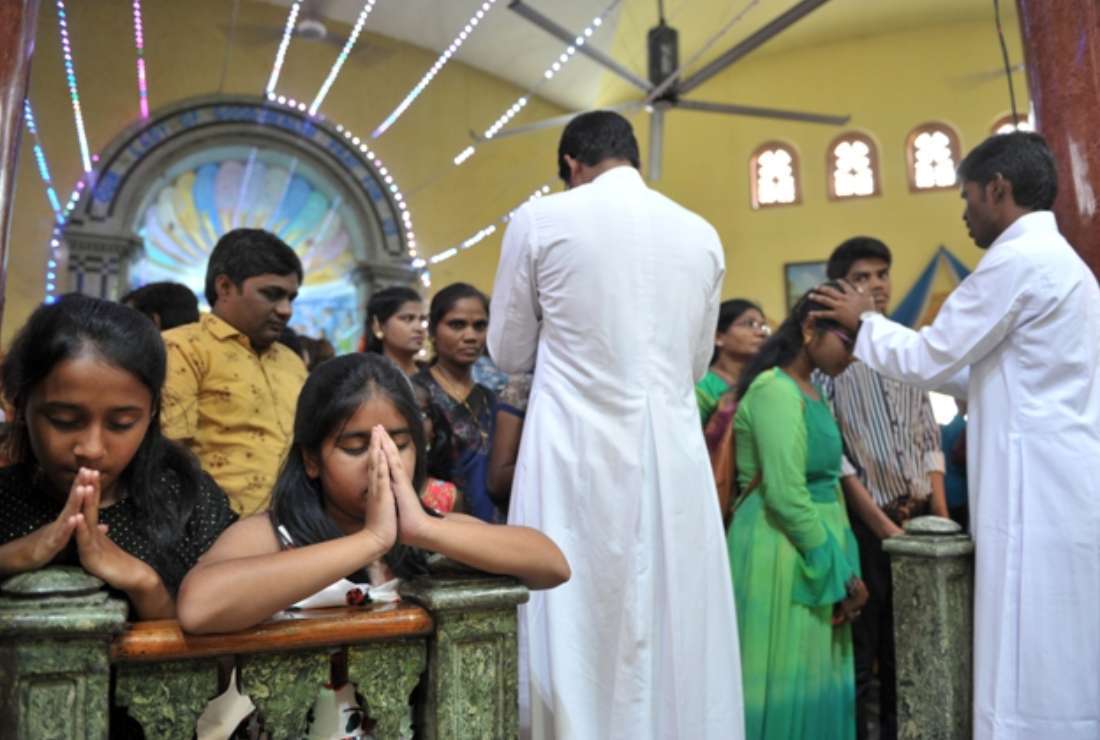

Indian Catholics pray as deacons bless them at the shrine of Our Lady of Health in Hyderabad on Sept 8, 2019. (Photo: AFP)
Christians have always maintained that the Gospel must be preached “to all creation” (Mark 16.15) — which means, to all cultures, at all times, and to all sorts.
But each age brings its own differences and difficulties. Ours is that of the “post-modern age.” So what exactly is this, and what are its characteristics?
Modernity, such as what has come to us from the 19th century onwards, is usually viewed as progressive, scientific, rational, and normative. As a wide-ranging term, it is applied to literature, philosophy, art and architecture, cultural and social criticism, among others.
But modernity has its drawbacks too, and we are more aware of these today.
The modernist canon has often revealed itself as patriarchal and racist, dominated by white heterosexual men.
What is Post-modernism?
Post-modernsm is critical of the modernist canon and has opened up a variety of other histories, many of which were suppressed and ignored — such as those of women, homosexuals, and the colonized peoples of Africa, Asia and pre-Colombian America.
As a result, the most common themes of post-modernism relate to cultural identity.
For this reason, post-modernism is highly skeptical of universal explanations which claim to be valid for all groups, cultures and traditions. Instead, it focuses on the relative truths of each person, even though fallible.
This becomes a problem in teaching the Catholic faith because this mentality refuses to accept anything which smacks of central control, or the desire to direct things from on high. In the context of the Church, it is an “anti-Roman attitude.”
Post-modernism rejects a universal teaching authority for the faith.
Today the preference is for knowledge that is local, pluralist and adaptable to different times and places. In the post-modern understanding we have moved to a context where the temporary and the transient are preferable to what is durable and unchanging.
This mentality is present everywhere, but especially among the young.
Teaching the Faith
How then does one explain and present the faith today?
Perhaps one can begin with this principle: Examine everything with discernment. Do not be afraid of diversity. (cf. 1 Thes 5.21-22)
This is a hard saying for Catholics, who have grown up in a Church which emphasized not just unity, but uniformity — one people, one pope, one form of worship, one ethical norm of behavior applicable to all.
Traditionally Roman Catholics have always valued obedience above everything — Catholics, after all, are not Protestants! Discernment has not been part of their vocabulary.
Today however, discernment is more important than obedience, for the Spirit is moving the Church into areas where traditional obedience is confused and has little to say — the whole area of ecumenism and inter-faith dialogue, for instance.
This is precisely what we’re being asked to do today — to pray for guidance, to discern every gift, to accept responsibility for one’s charism. Discernment tells me what the Lord wants of me “here and now.”
This also brings with it new implications — to take risks.
An earlier definition saw faith as a deposit, to be kept safe as in a bank, secure from all threats. “Mixed marriages” were seen, for instance, as a threat to one’s beliefs, and were to be avoided.
But since Vatican II, the Church has redefined faith in terms of itself, as a “pilgrim people” walking together towards a common goal. Note that this is the very image of “synodality”.
Faith now became a risk, an adventure. “Launch into the deep” (Luke 5.5), urges Jesus, and to follow him means leaving all behind, even what is most important to us, like family and possessions.
When one walks together with friends and strangers, something unpredictable and wonderful happens: faith becomes an experience, not a definition. And this is what the young need most of all, an experience that makes them cry out, “We have seen the Lord!” (John 20.25).
A Place for Silence
Finally, to encourage the life of faith in this post-modern age, we need to recover our sense of silence.
Post-modernism was born in the world of electronic noise. Every day we are submerged in millions of e-messages — visual, audio and text — which overwhelm us with their volume, speed and attractiveness.
All these seriously damage the natural rhythm of our interior life — our imagination and fantasy, our capacity to reflect and decide, to meditate and contemplate. For how can one’s life of faith be sustained and nourished without one being able to imagine, reflect and pray?
This is why silence and interior quiet is so essential.
To nourish one’s life of faith, some quiet time every day is vital. This is another challenge for the young.
To conclude with the words of Pope Francis: “Dear young people! God calls each of you by name. You are precious in his eyes, worthy of respect and love. Welcome with joy this dialogue which God offers you.”
*The views expressed in this article are those of the author and do not necessarily reflect the official editorial position of UCA News.
Help keep UCA News independent
The Church in Asia needs objective and independent journalism to speak the truth about the Church and the state. With a network of professionally qualified journalists and editors across Asia, UCA News is just about meeting that need. But professionalism does not come cheap. We depend on you, our readers, to help maintain our independence and seek that truth. A small donation of US$2 a month would make a big difference in our quest to achieve our goal.